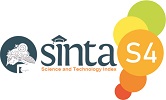Traditional Elements in the Iranian Realistic Drama
Abstract
Modern Iranian drama developed in line with a liberal school of thought, both
before and after the Constitutional Revolution in 1906. It came during the
transition from a traditional to a new type of society that was able to tolerate
and accept the revolution. The arrival of European theatre in 1878, with its
dependence on a written text rather than improvisatory acting, was part of the
modernization process in Iran that enjoyed its height in the early years of the
twentieth century. At the same time, traditional theatre was being rediscovered,
and playwrights started using some of its forms to develop indigenous modern
Iranian theatre to meet the standards of the genuine past and dynamic present.
Although there was an assimilation of certain secular tendencies, the newly
appearing type of drama satisfied the need for modernity through defending
political and social liberties. The road to transition began in the 1850’s and
gained momentum during the 1940’s through the 1970’s, leaving its effects on
Iranian drama in such a way that its legacy persists to date.
Keywords: realistic drama; Iranian drama; Iran Constitutional Revolution
Full Text:
PDFReferences
Arnold, Matthew. (1871). ‘A Persian Passion
Play’, The Cornhill Magazine, no. 24.
Ashoori, Dariush. (1996). Ma va Moderniteh
(We and Modernity). Tehran: Nashr-e
Sarat.
Athary Maryan, Seyed Assadollah. (2000).
‘Challenge between Tradition and
Modernity in Iran’, Iranian Quarterly, vol.
Beeman, William O. (1982). Culture,
Performance, and Communication in Iran.
Tokyo: ICLAA.
Bentley, Eric. (1953). In Search of Theatre.
New York: Knopf.
Beyza’i, Bahram. (1996). ‘Iranian Cinema,
from the Past to the Present’, Iran Nameh
IV: 3. Special Issue on Iranian Cinema.
Boroujerdi, Mehrzad. (1996). Iranian
Intellectuals and the West. Syracuse:
Syracuse University Press.
Enayat, Hamid. (1973). ‘The Politics of
Iranianology’, Iranian Studies, vol. 6, no.1.
Fani, Kamran. (2001). ‘Tarjomeh, chap va
Nashr-e ketab dar Iran’ (Translation,
Print and Publication in Iran) In: Iran
va Modernite: Goftegoohay-e Ramin
Jahanbeglou (Iran and Modernity:
Interviews by Ramin Jahanbeglou).
Tehran: Nashr-e Goftar.
Ghaffary, Farrokh. (1984). ‘Iranian Secular
Dramas’. In: Stanley Hochman (ed.),
McGraw-Hill Encyclopedia of World Drama
– an International Reference book in 5
volumes, 2nd ed.
Ghanoonparvar, M.R. (1984), Prophets of
Doom: Literature as a Socio-Political
Phenomenon in Modern Iran. Lanham:
University Press of America.
Gavin, Hambly. (1964). ‘Attitudes and
Aspirations of the Contemporary Iranian
Intellectual’, Journal of the Royal Central
Asian Society, vol. 50.
Hobsbawm, Eric & Ranger, Terence (eds.)
(1983), The Invention of Tradition.
Cambridge: Cambridge University Press
DOI: https://doi.org/10.24821/dtr.v1i2.3161
Refbacks
- There are currently no refbacks.






